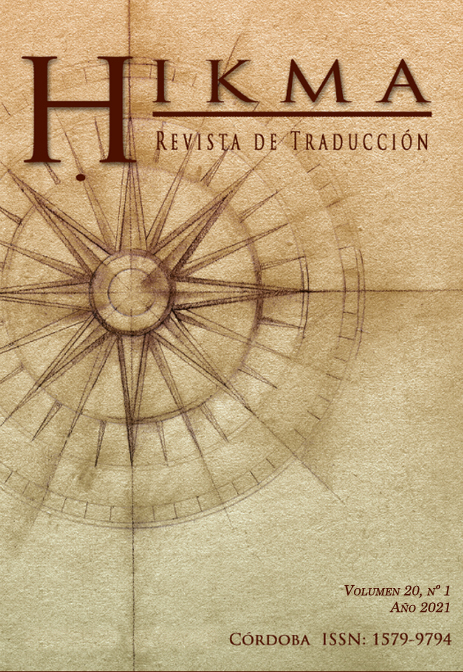A comparative and interdisciplinary study on the influence of emotionally negative triggering texts on translators
Main Article Content
Abstract
Frequently, translators have to deal with emotionally complex translations that may have consequences on both the translator and the final text. The aim of this study is to analyse the degree of influence of those texts that trigger negative emotions, with which the translator should deal, through the observation and quantification of the emotions that they experience, before, during and after the translation process of this type of texts, by comparing professional and non-professional translators. For this purpose, the Thinking Aloud Protocols (TAP) and the EVEA have been used, in order to obtain data, both qualitative and quantitative, respectively. The results show that the psychological mood of all the subjects has changed after the translation process. Furthermore, although there are variations between the emotional levels of the two groups, the differences are not significant. It can therefore be concluded that emotional texts affect translators to a greater or lesser extent and that professionalism may not be one of the factors related to the management of emotions in this type of texts.
Keywords: Translator, Emotional impact, Psychology, TAP, EVEA
Downloads
Article Details

This work is licensed under a Creative Commons Attribution-NonCommercial-ShareAlike 4.0 International License.
Authors who publish with this journal agree to the following terms:
1. Authors retain copyright and grant the journal right of first publication with the work simultaneously licensed under a Creative Commons Attribution License that allows others to share the work with an acknowledgement of the work's authorship and initial publication in this journal.
2. Authors are able to enter into separate, additional contractual arrangements for the non-exclusive distribution of the journal's published version of the work (e.g., post it to an institutional repository or publish it in a book), with an acknowledgement of its initial publication in this journal.
3. Authors are permitted and encouraged to post their work online (e.g., in institutional repositories or on their website) prior to and during the submission process, as it can lead to productive exchanges, as well as earlier and greater citation of published work (See The Effect of Open Access).

